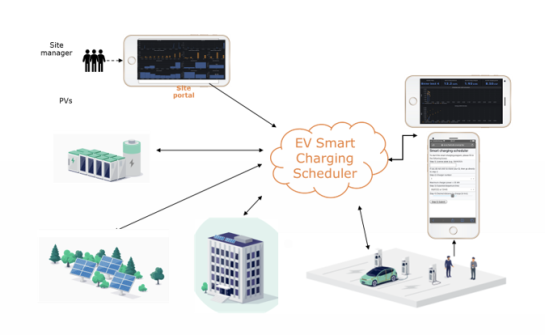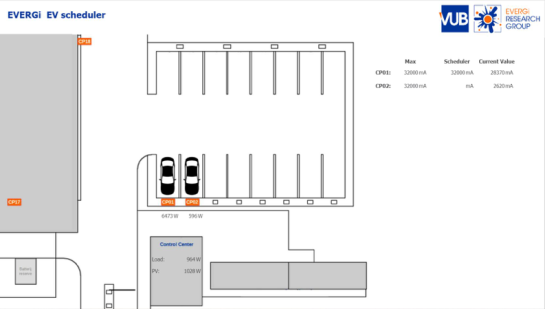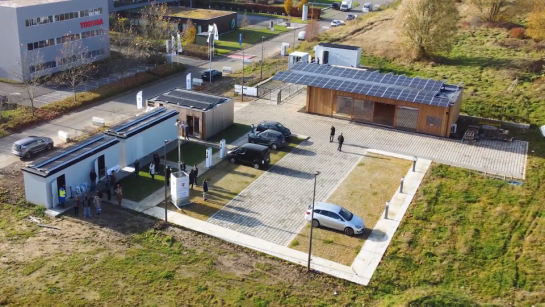EVERGi > EV charging hub design tool
EV charging hub design tool

The EV charging hub design tool is a python-based framework that allows to easily calculate optimal numbers of EV chargers and solar installation size for small (a couple of chargers) and large (up to hundreds of chargers) charging hubs. The tool optimizes the required number of chargers and size of the PV installation based on the mobility needs and technical constraints of your site or business.
The tool displays figures and graphs for the defined objectives (such as total-cost of ownership (TCO) and net present value (NPV)) which are easily interpretable and serve to make decisions on investments for charging hubs and PV installations.
1. What it does for you
The design tool will help you:
-
Select the right number of chargers (cost, serviceability) for your mobility demand
-
Select the right (cost-effective) size of PV installation
-
Understand energy costs of introducing electric vehicle charging into your system
-
Quantify the benefits of smart charging
2. How does it work?
The process works in three steps:
-
Step 1: mapping of the current situation of your business or site. This includes the mobility needs, technical constraints as well as geospatial information (e.g. location, surfaces). This information is used to set-up the simulation and optimization of the design tool.
-
Step 2: optimization algorithms run iterative simulations for various configurations of the charging hub based on pre-defined design variables (such as number of chargers and size of the PV installation) to come to an optimal solution based on the pre-defined objectives
-
Step 3: results are stored and displayed in figures and graphs which are easily interpretable
The unique set-up of this tool is the combination of multiple techniques to calculate accurate cost calculations:
-
The integration of a Charging Session Simulator that produces charging sessions distributed in time, energy, and detention time using profiles specifically for your mobility demand.
-
The integration of the smart charging scheduler that allows to include realistic achievable smart charging into the simulation
The improvement in accuracy is achieved by using actual time-based (15 minute resolution) power profiles of all elements (vehicles, building, PV) instead of using averages. This is essential with regards to accurate values for self-consumption and peak powers and all associated costs. In comparison to linear optimization techniques, this optimization set-up is much closer to reality by using actual 15 control decisions instead of perfect foresight optimal decision.
3. Simulation tool
Going live soon.

EV smart charging scheduler

The 'Electric Vehicle Smart Charging Scheduler', developed by the EVERGI team of the Vrije Universiteit Brussel, is a predictive power control algorithm that has a first application in the operational design and management of uni- & bi-directional charging for electric vehicles.
The Scheduler defines the quarter-hourly charging power for individual chargers on sites equipped with PV, various loads and energy storage. It's a centralized control algorithm that optimizes the charging cost and peak powers. The scheduler uses a model predictive control (MPC) algorithm and forecasted values for PV production, aggregated load, and charging demand.
- Cloud-based intelligence
- Technology agnostic
- Interfaces for managers
- Interface for drivers:
- Charging requirements
- Charging session status
1. What it does for you


The scheduler will help you to:
-
Reduce your energy bill through:
- Exploiting variable energy prices
- Avoiding peak powers and costs
- Increasing self-consumption of your solar installation
-
Avoid grid connection reinforcements or grid connection overloading
-
-
Increase self-sufficiency while maintaining driving range requirements for the driver.
News

|

|
Live testing of the EVERGi smart charging scheduler at the Smart Village Lab of the Green Energy Park!


